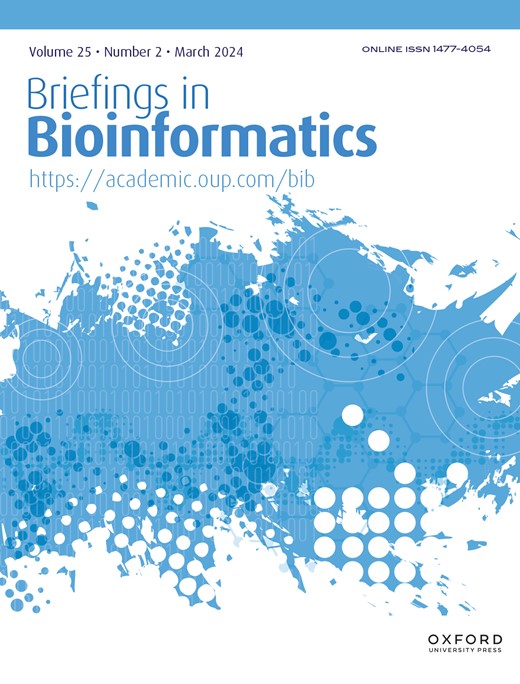基于注意的知识图表示学习预测药物-药物相互作用
IF 6.8
2区 生物学
Q1 BIOCHEMICAL RESEARCH METHODS
引用次数: 17
摘要
药物-药物相互作用(ddi)被认为是危及生命的不良事件的主要原因,它们的识别是药物开发的关键任务。现有的计算算法主要通过使用先进的表示学习技术来解决这一问题。虽然有效,但很少有人能够在生物医学知识图(KGs)上执行任务,这些知识图提供了关于药物属性和药物相关三重事实的更详细信息。本文提出了一种基于注意的KG表示学习框架DDKG,以充分利用KG的信息来提高DDI预测的性能。特别是,DDKG首先通过一个编码器-解码器层初始化药物属性的嵌入,然后通过递归传播和聚合一阶相邻信息,沿着由相邻节点嵌入和三重事实确定的顶级网络路径学习药物的表示。最后,DDKG以端到端方式估计成对药物与其表征相互作用的概率。为了评估DDKG的有效性,在两个不同规模的实际数据集上进行了大量实验,结果表明,在所有数据集的不同评估指标方面,DDKG在DDI预测任务上优于最先进的算法。本文章由计算机程序翻译,如有差异,请以英文原文为准。
Attention-based Knowledge Graph Representation Learning for Predicting Drug-drug Interactions
Drug-drug interactions (DDIs) are known as the main cause of life-threatening adverse events, and their identification is a key task in drug development. Existing computational algorithms mainly solve this problem by using advanced representation learning techniques. Though effective, few of them are capable of performing their tasks on biomedical knowledge graphs (KGs) that provide more detailed information about drug attributes and drug-related triple facts. In this work, an attention-based KG representation learning framework, namely DDKG, is proposed to fully utilize the information of KGs for improved performance of DDI prediction. In particular, DDKG first initializes the representations of drugs with their embeddings derived from drug attributes with an encoder-decoder layer, and then learns the representations of drugs by recursively propagating and aggregating first-order neighboring information along top-ranked network paths determined by neighboring node embeddings and triple facts. Last, DDKG estimates the probability of being interacting for pairwise drugs with their representations in an end-to-end manner. To evaluate the effectiveness of DDKG, extensive experiments have been conducted on two practical datasets with different sizes, and the results demonstrate that DDKG is superior to state-of-the-art algorithms on the DDI prediction task in terms of different evaluation metrics across all datasets.
求助全文
通过发布文献求助,成功后即可免费获取论文全文。
去求助
来源期刊

Briefings in bioinformatics
生物-生化研究方法
CiteScore
13.20
自引率
13.70%
发文量
549
审稿时长
6 months
期刊介绍:
Briefings in Bioinformatics is an international journal serving as a platform for researchers and educators in the life sciences. It also appeals to mathematicians, statisticians, and computer scientists applying their expertise to biological challenges. The journal focuses on reviews tailored for users of databases and analytical tools in contemporary genetics, molecular and systems biology. It stands out by offering practical assistance and guidance to non-specialists in computerized methodologies. Covering a wide range from introductory concepts to specific protocols and analyses, the papers address bacterial, plant, fungal, animal, and human data.
The journal's detailed subject areas include genetic studies of phenotypes and genotypes, mapping, DNA sequencing, expression profiling, gene expression studies, microarrays, alignment methods, protein profiles and HMMs, lipids, metabolic and signaling pathways, structure determination and function prediction, phylogenetic studies, and education and training.
 求助内容:
求助内容: 应助结果提醒方式:
应助结果提醒方式:


